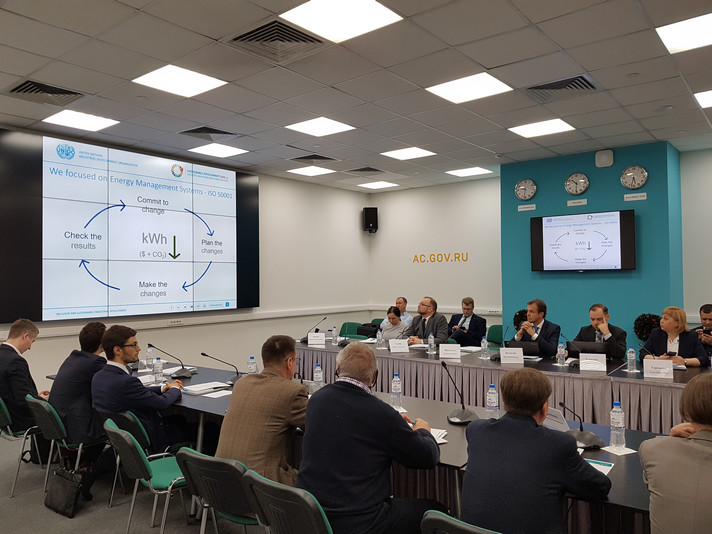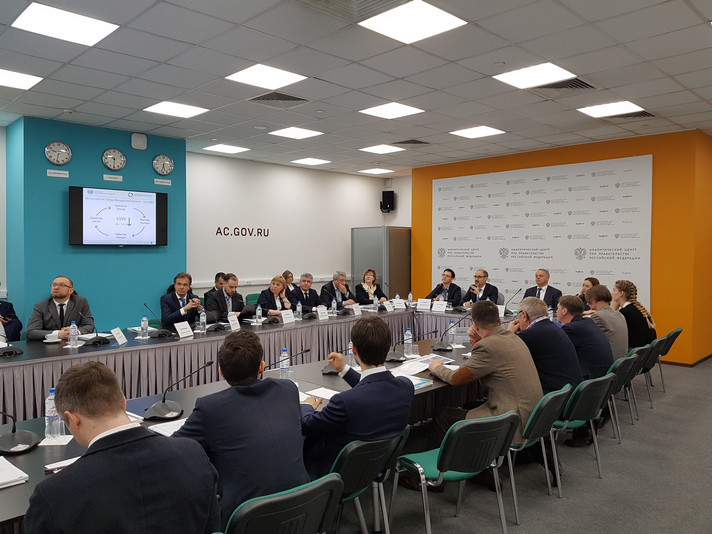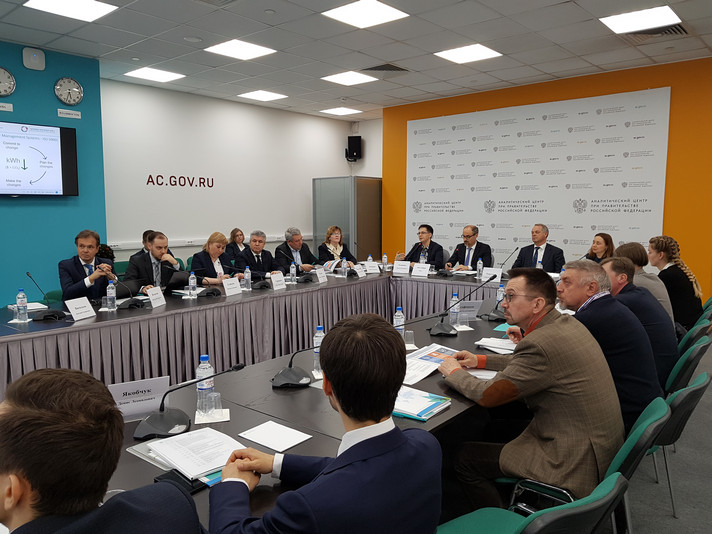UNIDO project on industrial energy efficiency in Russia has been officially completed
April 24, 2018

An event dedicated to official closure of UNIDO Market Transformation Programme on Energy Efficiency in Greenhouse Gas-intensive industries in the Russian Federation was held at the Analytical Centre under the RF Government on April 18th.
The GEF-supported project was being implemented in Russia for a period of six years, from 2011 to 2017. It has helped more than 50 national industrial enterprises to implement energy management systems and conduct energy system optimizations, which led to direct energy saving of 3 687 GWh, and GHG emission decrease by 2 564 thousand tons. Energy savings in the next 10 years are projected to be in amount of 13 444 GWh. ‘There were some difficulties in the beginning. But the way the team was able to overcome them and what results to achieve, speaks for itself’, mentioned in his opening remarks Sergey Korotkov, Head of UNIDO CIIC Russia.

Along with energy saving and reducing negative environmental impact, the sustainability of achieved results was one of the most important aspects: the project aimed to ensure knowledge transfer to the national level and communication of UNIDO methodology to the wide circle of industrial specialists, consultants and academia, to enable them to disseminate knowledge and best practices and teach others even upon the project completion.
As a result, more than 370 Russian energy specialists have been trained in the international expert-level programmes “Energy management implementation” and “Energy system optimization”, 154 of them became UNIDO national experts. More than 25 000 people took part in all-national webinars on energy saving and EnMS implementation. More than 200 state officials have attended trainings on EnMS implementation and Energy Performance Indicators.
Another project highlight was the initiation of EnMS implementation programme on municipal level. Following the industrial programme, 10 municipal enterprises in Naberezhnye Chelny have implemented energy management system by UNIDO methodology. This successful experience is envisaged to scale up to other regions and cities: for example, Astrakhan has started working on developing city-level EnMS implementation.

One of the major work directions within the project was support to state policy on energy sector development. To accomplish this goal the project team collaborated with leading Russian research institutions and government bodies and jointly developed recommendations on energy policy improvements, conducted a series of research works, particularly, formulated qualification requirements for market participants; created a practical guide on EnMS implementation in industrial and municipal enterprises. Benchmarking system for energy efficiency of industrial enterprises has also been developed. ‘The project lived and will go on living, as its results are reflected in half of the legal acts. It was a blank page in the beginning, and how we managed together to fill it in was a true gift’, — said Tikhon Koveshnikov, Head of Department of Implementation and Monitoring of the State Programme of Russian Energy Agency.
The closing event was attended by representatives of the ministries and other project partner organizations. All of them highly rated the achieved results in terms of energy efficiency increase, and also very positively marked the long-term effects of the project on Russian energy sector development. As put by Irina Zadirako, Housing and Utility Department of the Government of Moscow, ‘before the project, we lacked a complex approach to energy efficiency increase; the focus was on separate technical and organizational energy saving measures: energy audits, installment of metering devices, 3% annual energy saving requirement for budgetary sphere. In the framework of UNIDO project, we started to view energy efficiency as an instrument for development, be it enterprises, municipalities, or budgetary entities. EnMS component allowed to invest in people. Teaching us all a complex approach to energy efficiency – is one of the most important project’s results”.

